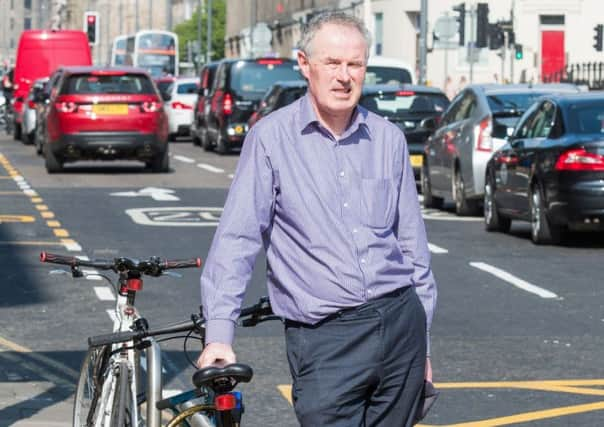Cycling can boost immune system, scientists find


Scientists carried out tests on 125 amateur cyclists aged 55 to 79 and compared them with healthy adults from a wide age group who did not exercise regularly.
The findings showed that the cyclists preserved muscle mass and strength with age while maintaining stable levels of body fat and cholesterol.
In men, testosterone levels remained high.
Advertisement
Hide AdAdvertisement
Hide AdMore surprisingly, the anti-ageing effects of cycling appeared to extend to the immune system.
An organ called the thymus, which makes immune cells called T-cells normally starts to shrink from the age of 20.
But the thymuses of older cyclists were found to be generating as many T-cells as those of young individuals.
Professor Janet Lord, director of the Institute of Inflammation and Ageing at the University of Birmingham, said: “Hippocrates in 400BC said that exercise is man’s best medicine, but his message has been lost over time and we are an increasingly sedentary society.
“However, importantly, our findings debunk the assumption that ageing automatically makes us more frail.
“Our research means we now have strong evidence that encouraging people to commit to regular exercise throughout their lives is a viable solution to the problem that we are living longer but not healthier.”
Male cyclists taking part in the study had to be able to cycle 100km (62 miles) in under 6.5 hours, while women had to cover 60km (37 miles) in 5.5 hours.
The non-exercising group consisted of 75 healthy people aged 57 to 80, and 55 adults aged 20 to 36.
Advertisement
Hide AdAdvertisement
Hide AdProfessor Stephen Harridge, director of the Centre of Human and Aerospace Physiological Sciences at King’s College London, said: “The findings emphasise the fact that the cyclists do not exercise because they are healthy, but that they are healthy because they have been exercising for such a large proportion of their lives.
“Their bodies have been allowed to age optimally, free from the problems usually caused by inactivity.
“Remove the activity and their health would likely deteriorate.”
The research is outlined in two papers published in the journal Aging Cell.
Professor Chris Oliver, the so-called “cycling surgeon” from the University of Edinburgh, said: “I’m pleased to see this study that supports cycling as holding back the effects of ageing and boosting the immune system.
“It just shows what cycling can do for your positive health and well-being.
“This adds to our current knowledge on the effects of physical activity which has been shown to delay the ageing of chromosomes.
“Just get out there and cycle.”
Cycle path developers Sustrans Scotland said cycling also raised metabolic rate, helping prevent weight gain.
CASE STUDY
Advertisement
Hide AdAdvertisement
Hide Ad‘Cycling is one of the easiest ways of fitting in exercise without gym visits’
After more than 40 years keeping fit just by cycling, Ian Maxwell was delighted to hear of its additional benefits.
Mr Maxwell cycles four miles to work in Edinburgh each day and has been riding since buying a bike for £5 in a police sale while at university.
The 62-year-old member of Spokes, the Lothian cycle campaign, said: “I was pleased that there are even more benefits to cycling than I thought.
“It is just an added reason to cycle on top of what I already knew.
“Regular cycling is one of the easiest ways of fitting in exercise without the need for gym visits.”
Mr Maxwell said apart from walking, cycling was the only exercise he took, but he soon noticed the difference even after a short break from it.
He said: “My commute is 45 minutes each way, which gives me enough of a workout.
Advertisement
Hide AdAdvertisement
Hide Ad“I do walk a reasonable amount but do not feel the need to do anything else.
“If I’ve had a break from cycling for even only a week or two, I find when I get back to it that I don’t have as much stamina and get out of breath.
“However, it only takes a week or so to recover.”
Mr Maxwell said in countries such as the Netherlands and Denmark, people kept cycling to a “great age”. Others continued using their bikes, but as a prop to help them walk, along with to carry heavier items such as shopping.
He said there was an opportunity in Scotland to convert people to cycling when they stopped commuting by car, such as when they retired.
He said: “That’s when it’s important to get folk into regular exercise such as cycling.”
However, Mr Maxwell feared some older people might be switching from cars to buses when they got their free bus pass at 60.
He said: “It makes the bus more attractive and may have an impact on their health.”
However, he predicted the wider availability of electric bikes would encourage more older people to cycle: “For those not as fit, they are a wonderful introduction to cycling and provide a significant boost, especially up hills.”